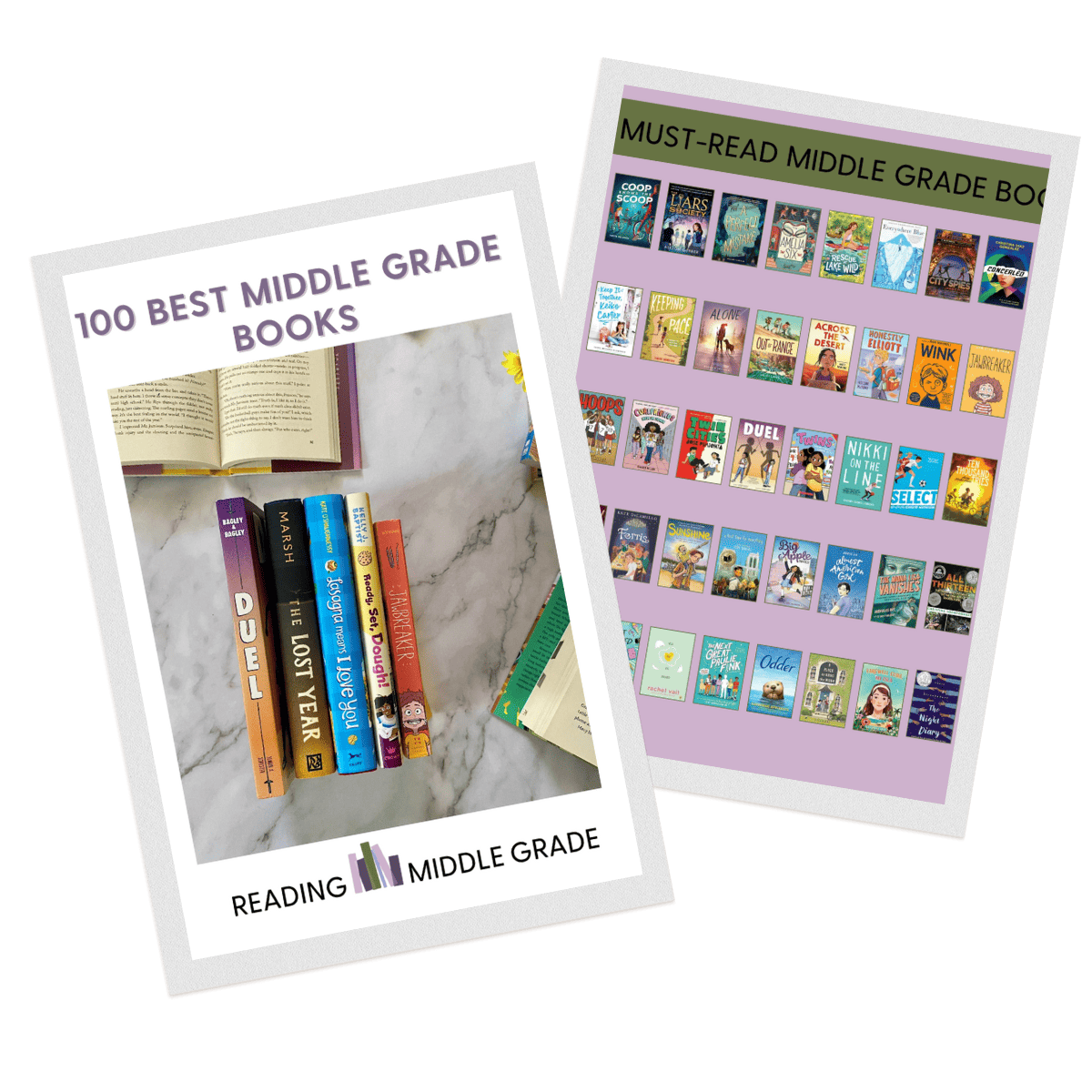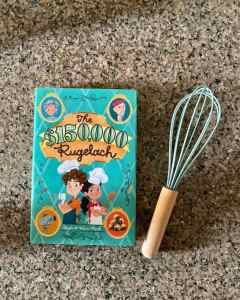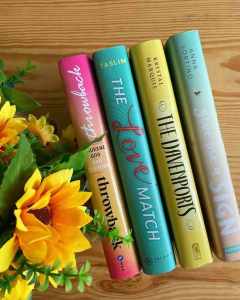I’m pleased to be interviewing author Melanie Conklin today. A little known fact is that Counting Thyme was one of the first middle grade books I read (listened on audio) in my adult life — one that triggered the desire to read more middle grade. I loved the protagonist’s family who named both their kids after herbs: Thyme and Valerian. I recently read her latest middle grade novel, Every Missing Piece — and I loved it even more than her debut.
Melanie is a dedicated writer who obviously pays attention to her craft. I was delighted to chat with her about Every Missing Piece, anxiety, tips for writing hard themes for kids, her favorite writing craft books and how she maintains a mostly productive writing schedule. I loved this interview and I know you will too.
Interview with Author of Every Missing Piece, Melanie Conklin

Hi Melanie! It’s so great to chat with you about Every Missing Piece! I loved Maddy’s story, and as a person with anxiety, I related hard to so many of her concerns. The premise of this book is intriguing. Why did you decide to write about a missing child and the ensuing controversy?
Growing up, I was always really sensitive to the idea of missing children. I felt it was my personal duty to memorize the faces of missing people in case I saw them one day. Looking back, I see how I was trying to bring some kind of order and purpose to the world. The idea that a child could go missing was just too scary and awful, and I needed to feel like there was a way I could help. Those feelings are definitely part of Maddy’s story, too.
Maddy is adjusting to a new step-parent (and kind of trying not to like him). I appreciated the psychological intricacies of bonding with a step-father. I’m curious what inspired that narrative arc, especially because you wrote Maddy’s experience in such a realistic way.
I’m a very loyal person, and sometimes I struggle to let new people into my life. As a kid, it felt almost like a betrayal to make a new friend. Old friends weren’t always so tolerant of me branching out. I got dumped by “best” friends many times, often in pretty humiliating ways.
As an adult, I’ve learned that I have a lot of love to share, and that loving someone new does not mean I stop loving someone else. When I imagined myself in Maddy’s shoes, this is the conflict I felt: a desire to bond with her new step-father contrasted with a deep fear of losing her father forever. I’m glad Maddy finds her way in the end!
I loved Maddy’s relationship with her mother, and the balanced way in which she handles the grief of losing Maddy’s dad, how she deals with Maddy’s anxieties and the coping strategies she offers, like the safety checklist. Are there any coping strategies you find helpful for dealing with anxiety?
When my anxiety acts up, I find it helpful to focus on being kind to myself. I try to remind myself that I don’t have to listen to the critical voice in my head. I can tell it to be quiet, or to go away. I can reassure myself instead. I can give myself a hug, or go for a walk, or listen to my favorite music. I can comfort myself instead of being harder on myself. It’s so easy to be too hard on ourselves, when what we really need is love, just like Maddy’s mom gives to Maddy in her toughest moments.
I liked the other kids in the story: Diesel, Cress, and, of course, Billy! I love stories where we learn that a character is more than what meets the eye, and we experience that with Diesel. What did you want to accomplish with his character?
I’m also a fan of characters that surprise us, because humans are generally surprising! We have layers. We make bad choices. We learn and grow.
I try to give every character a growth arc, as well as a secret that will be revealed over the course of the story. With Diesel, I enjoyed taking a character that we don’t like very much and peeling back the layers to show his true motivations. It’s very easy to make surface judgements about other people, even people we have known all our lives, but sometimes we’re not seeing the whole picture. Sometimes, people can surprise us.
This story has some serious themes, like substance abuse and domestic violence. Both of which are becoming more and more prominently featured in middle grade literature. Do you have any tips for writing about hard topics for kids?
The difference between portraying serious themes for adults and for children is a matter of perspective. Adult readers can witness serious scenes directly on the page, because they have the experience and framework to process those images and words. Child readers, on the other hand, need the author to filter those scenes with love and care, so that they are not harmful to the child reading them.
Often, violence happens off stage, or is somehow cushioned in its delivery, while still being truthful about the realities of life. It’s a difficult balance to strike, but serious themes don’t just happen in books. Children are out there living these realities, and we have an obligation to be honest with them about the world, and the people living in it.
I get the sense that you’re a very disciplined writer/person. How do you make the most of your work days? Do you have any tips for productivity/efficiency/getting things done?
I certainly try to be disciplined! LOL. I’m a creature of habit, so I find that having a writing routine is very helpful. It’s easier to get started when you have some familiar rituals. Mine involve wearing fingerless gloves, making a cup of tea, writing in a journal, and listening to music. When I follow these steps, my brain falls into the familiar routine of writing more easily.
I also try to be realistic about how much I can get done in a given day. Luckily, my editors have been very supportive, and that allows me to be a little kinder to myself with my daily goals.
I love your new YouTube channel and all the writing craft tips you share on there. Do you read craft books? If yes, what are some of the most impactful ones you’ve read so far?
I love writing craft books! My most recent obsession is Walter Dean Myer’s Just Write, which feels more like a warm hug than any other craft book I’ve ever read. His words are so compelling. He makes me believe that I can write. I also love Lisa Cron’s Story Genuis, and Cheryl Klein’s The Magic Words. Both are pretty intense reads, but are great references for specific writing elements when you’re trying to get something to work.
What are your least and most favorite parts of writing stories?
My least favorite part of writing is the first big revision pass on a rough draft. Usually, my plot is wrong. Sometimes it’s close, but often I need to significantly change the external events in the story, which is tedious. It’s so hard to unbraid all of those story elements in order to re-arrange them! I’ve learned that I work better starting fresh, on a blank page. That’s the easiest way for me to re-envision a scene. I let myself fall in love with the solutions before I go back and look at the old draft. By the time I do, I’m usually ready to move on.
My favorite part of writing is brainstorming. I love generating alternatives and exploring solutions. It’s amazing what our brains can do!
Which awesome middle grade books have you read and loved recently?
I read a novel called Cloud Hopper this year that really stuck with me. It’s by Beth Kephart, who I was lucky to panel with for GreensboroBound 2020. Her writing is so lyrical and lush. I really admire it.
Right now I’m reading From the desk of Zoe Washington, which is such a charming and heartfelt book. I feel a powerful conclusion coming, and I can’t wait for Janae Mark’s next book!
Can you tell us anything about your next project?
Up next is a contemporary middle grade set in New Jersey, in a town very much like my own. This story features a boy named Max who struggles with his ADHD and making mistakes. He’s just made a very big mistake, and as a result, one of his friends is in a coma and the other friend is shutting Max out. To get his friends back, Max must find out what really happened that night, or else he risks losing them both. Title and cover to be announced soon!
Thank you so much, Melanie!
Buy Every Missing Piece
Meet Melanie Conklin

Melanie Conklin grew up in North Carolina and worked as a product designer for ten years before she began her writing career. Her debut middle grade novel, Counting Thyme, is a Bank Street Best Children’s Book, winner of the International Literacy Association Teacher’s Choice Award, and nominated to four state reading lists. Her second novel for young readers, Every Missing Piece, published with Little, Brown in May 2020. When she’s not writing, Melanie spends her time doodling and dreaming up new ways to be creative. She lives in New Jersey with her family. Connect with her on the website and Twitter.
This interview was sponsored by Melanie Conklin. Thank you for supporting the authors and brands who keep Reading Middle Grade free for all readers. You can support us by donating here, or sponsoring a post.
More Author Interviews
- Claire Swinarski on The Kate in Between
- Janae Marks on From the Desk of Zoe Washington
- Chris Baron on The Magical Imperfect














What do you think? Leave a comment